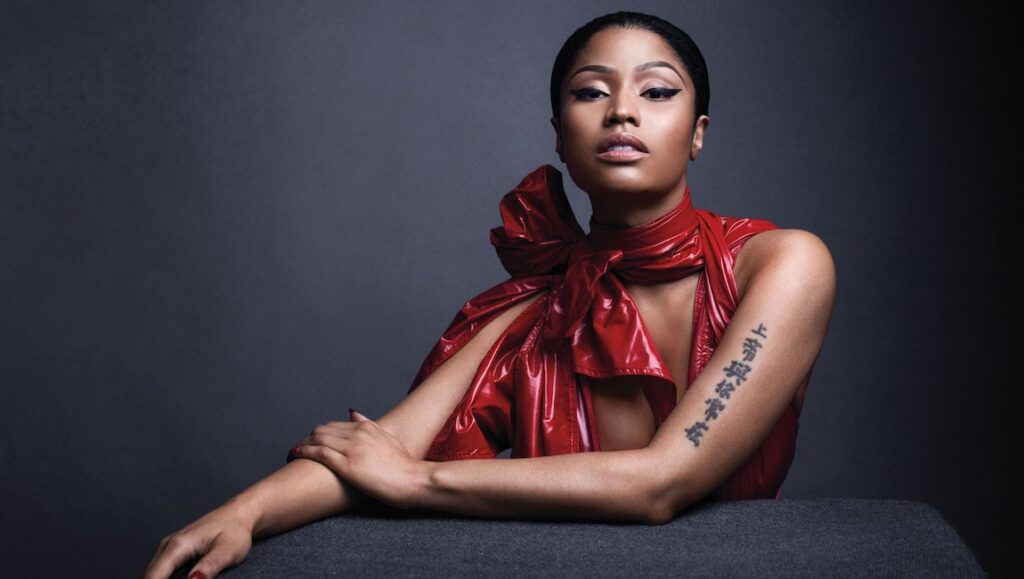“Jealousy is a disease / die slow,” Nicki Minaj whispers to her critics at the end of “Majesty.” It’s devilish — almost pure evil — for the star to wish death upon those envious of her success. Between encouraging fans to harass said critics and enabling the sex-offender “king of New York” on chart-topping “FEFE,” Nicki, on her latest LP Queen, reiterates again and again that the games are over and that it’s time to pay the piper. “Before you suck me off, get a knee pad,” she insists on the Mike Will-produced “Good Form,” and if any entity’s power rivals Minaj’s in her kingdom, it’s her own vagina (see “Rich Sex” for more details). No longer content to be a mere comic-book villain, as she was during her “Roman” phase, Nicki ups her status to haughty despot. On “Barbie Dreams,” she enumerates a long list of male contemporaries and highlights their ‘flaws’ in some of the most base, lowest-common-denominator, Young Money Records way possible. For example: “Had to cancel DJ Khaled, boy, we ain’t speaking / Ain’t no fat n**ga tellin’ me what he ain’t eatin’.”
One particular run of songs towards the middle of Queen, though, offers a brilliantly unsettling vision of Nicki going full-throttle, pushing the limits of her vocal range, flows, and lyricism. Swae Lee’s haunting vocal work on “Chun Swae” provides a foundation for Nicki to record something akin to her own “Everything,” the galvanizing Nas/Kanye West duet. But instead, like Young Money brethren Drake on his last album, Nicki delves deep into her narcissism: at the end of the track’s first verse, the bar/ad lib “If he say he don’t want me back, he be lyin’” is followed by an awkward silence. Moments like this one, along with Nicki’s multiple bouts of unhinged laughter and her countless assertions of her own deserved royalty, make the artist’s album-long act seem chillingly convincing. The ad libs on “Chun-Li” go as far as to suggest a Fake News-style victimization (“Get on their fucking keyboards to make ME the bad guy”), further ratcheting up the crazy so as to compel some kind of emotional engagement, even if it’s disgust — and maybe it’s supposed to be. All this results in some major bangers — ones that are only more compelling for how revolting they are. And while it’s Nicki’s insistence on indulging her whims that enables this caricature of queenhood, it also leads to ill-fitting juxtapositions like those between the bullish, Eminem-featuring insult track “Majesty” and the overproduced pop of “Come See About Me.” Ultimately, Nicki’s claim to the throne feels illegitimate, with her reliance on sounds popularized by other artists leaving Queen in the company of The Carters, this year’s other fraudulent pop coronation.
Published as part of What Would Meek Do? | Issue 2


Comments are closed.